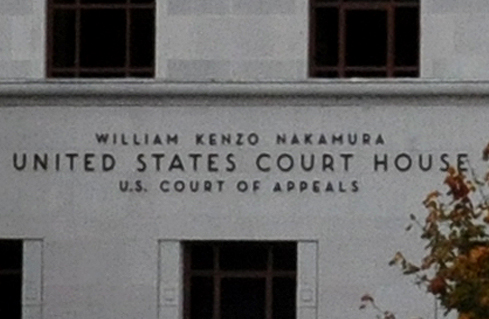 (Jan. 22, 2013) I “went postal,” but it was the United States Postal Service that created the casualties.
(Jan. 22, 2013) I “went postal,” but it was the United States Postal Service that created the casualties.
For six months in 2010, my 89-year-old aunt had been confined against her will, and without legal representation, in a locked dementia facility in South Carolina. She was desperate to get out. After doing some research about her case, I was thrilled to locate a document that all she had to do was sign to regain her freedom and autonomy. I sent it to her by certified mail -- since we knew her regular mail was being confiscated (she was also denied phone access).
The care facility's front desk refused twice to accept delivery. I was livid. I contacted the office of the United States Postmaster General, and asked that my aunt's right to receive mail be enforced. After "intense negotiations" with care-facility executives, the postmaster general's chief counsel declined to press the matter. The document was returned to me, and the postal service said, “the case is closed.” My aunt remained essentially a prisoner, illegally isolated from the outside world, and the declaration that could have saved her remains on my desk to this day, unopened.
We have just learned that she died weeks ago, having never again been allowed any contact whatsoever with her beloved "big sister," my 94-year-old mother.
This could happen to anyone in a health-care or long-term residential facility, which should scare all of us.The care facility's front desk refused twice to accept delivery. I was livid. I contacted the office of the United States Postmaster General, and asked that my aunt's right to receive mail be enforced. After "intense negotiations" with care-facility executives, the postmaster general's chief counsel declined to press the matter. The document was returned to me, and the postal service said, “the case is closed.” My aunt remained essentially a prisoner, illegally isolated from the outside world, and the declaration that could have saved her remains on my desk to this day, unopened.
We have just learned that she died weeks ago, having never again been allowed any contact whatsoever with her beloved "big sister," my 94-year-old mother.
The postal service asserts pathetically that it can’t “force its way onto private property” to deliver mail.
There was no need for it to “force its way” onto the premises. All the carrier needed to do was to ask the front desk to summon my aunt to sign for the package. When the facility refused to do so, the mail carrier should have called a federal marshal to ensure that my aunt’s fundamental right to send and receive mail was enforced.
CONSTITUTIONALITY MUST TAKE PRECEDENCE
If you are serving a life sentence for murder in a maximum security prison, you are entitled to send and receive mail. It cannot be opened, censored or withheld without a court order.
But if you should ever enter, with or without your consent, a nursing home or assisted living facility, you lose your right to receive your mail. In fact, failure to receive mail is the second most common complaint received by state ombudsmen for long-term care.
The postal service's policy specifies that the postal carrier can only go as far as the front desk in delivering mail to a facility’s residents. The postal service doesn’t care what happens beyond that point. This enables any privately run facility to reject, intercept, censor or destroy mail addressed to its residents.
Obviously, a mail carrier doesn't enter a prison and go from cell to cell, delivering mail. But the prison is legally required to provide inmates with their mail and can be federally prosecuted for failing to do so. Why should the policy be any different for a long-term care facility or nursing home? It is patently absurd. It defies all reason and compassion.
When the USPS claimed it could not "force its way onto private property," it was blatantly favoring property rights over First Amendment rights, and it was gallingly negligent in carrying out its mission. Its behavior was indefensible on every level.
When I tried to send the “revocation document” that would have enabled my aunt to free herself,, she was incarcerated in The Haven at Chanticleer in Greenville, S.C.. pictured below.
After the facility refused to permit delivery of the vitally important legal document, I spoke with a Haven employee who said that the facility’s residents are 'incompetent' to sign for anything, so "she'll never get it."
YOUR MENTAL CAPACITY IS IRRELEVANT
Even if my aunt had full-blown Alzheimer's disease, she would be entitled to receive her mail, whether it were standard or certified.
But she had a form of cognitive impairment so mild that if you were to speak with or correspond with her, you wouldn't even notice her deficits. The vast majority of people with mild cognitive impairment or early-stage dementia live on “the outside.” My aunt was still legally entitled to vote and to drive a car (except that she was locked up) and to sign documents that are of far greater complexity and import than a mail receipt. She was a gentle, charming woman -- and a fine conversationalist -- who was desperate to regain control over her life.
The Haven had demonstrated a consistent pattern of attempting to isolate my aunt from the outside world, so that she wouldn't even be aware of -- much less be able to exercise -- her rights. The postal service was a heartless accomplice in this crime.
When I wrote to United States Postmaster General John Potter about the failure of The Haven to deliver the document to my aunt, his general counsel, Mary Anne Gibbons, responded promptly, via Blackberry, to let me know that the matter was being investigated.
DELIVER THE LETTER, THE SOONER THE BETTER
“Can it possibly be true,” I had written to her, “that administrators of these for-profit institutions can prevent the delivery of, or intercept and screen, incoming mail, and can surreptitiously halt the transmission of outgoing mail?
She did not answer my question.
“Those who are confined to these facilities are already among the most isolated, lonely and vulnerable members of our society,” I added.
Our greatest grief over this whole matter was that my aunt had no way of knowing that we were trying to reach her and trying to help her. When she had first been confined to The Haven in January, 2010, she was still able to call and write to us. She begged me to help her get out. She didn’t understand by what authority she could be held against her will.
INCOMMUNICADO IN THE GULAG
She strongly believed that she did not belong in a dementia ward, and our telephone and mail contact with her supported that assertion. She was alert, articulate, warm, reasonable and perceptive. In spite of her anguish and panic over her confinement in what she regarded as a “gulag,” she still had the presence of mind to ask about our well-being and our various pursuits. Her memory and her appealing personality seemed to be intact. She was interested in the "goings on" of the world, and she asked me to get her a subscription to her home-town newspaper. She was still interested in clothes, hair and makeup. She longed to go shopping and dine in a restaurant.
I described to her the efforts I was making to communicate with nonprofits, legal, social services and aging services agencies, as well as the media, to enlist their assistance. It was hard for me to help her from 2,000 miles away. She understood what I was saying, asked appropriate questions and expressed tearful gratitude for my attempts to help her.
She was understandably devastated that she had never been provided with legal counsel. She was heartbroken that her daughter had sold her home without her consent -- a home she had hoped to return to.
I identified strongly with her panic at being locked up and abandoned. She had been trying to figure out how to escape, and had gotten a letter out to me by pleading with another resident's visitor to mail it for her. She resented the regimentation and lack of privacy at The Haven, and she felt that she had been thrust into a unit in which everyone was so "far gone," there was no one for her to talk to. She told me that she felt like a caged animal. She was terrified that my mother -- her sister -- and I would forget about her, and she would be left there to rot.

THE HAVEN GOES FOR THE GOLD
When my aunt's daughter learned of her communication with us, she ordered The Haven to prohibit all mail and phone contact, something that neither she nor anyone else has the right to do. Since it was the daughter who was signing the checks, The Haven slavishly complied. For the first time in their lives, my mother and her sister -- two widows in their nineties -- were unable to sustain their close, loving relationship. They were completely cut off from each other at a time when their bond was more important than it had ever been.
When I informed the director of the Haven, Carson Bush, that my aunt was so distraught she was contemplating suicide, the facility began sedating her. She soon realized that if she made a ruckus about wanting to get out or wanting to die, she would be forcibly medicated as a “behavior management strategy.” Tranquilizing an elderly person is dangerous; it affects orientation and balance even in young people. My aunt fell several times, and had to be hospitalized twice as a result, once for a broken hip.
An overmedicated, desperate, terrified, lonely old woman with a broken hip is not likely to bounce back, either physically or psychologically. If they wanted to beat her down, they had succeeded. We received a picture of her in which she looks like a concentration camp survivor.
This is not the lighthearted, robust chatterbox we knew -- it's what was left of her after one nightmarish year at The Haven. Her eyes look haunted, alienated and wary. Her once-regal bearing has collapsed into an anguished slump. That is what imprisonment -- especially when you're "innocent" -- does to the human spirit. The picture we have of her from just a couple of years earlier shows a stylish blonde "party girl," with a pretty figure and an impish smile. But that was before her incarceration and isolation.
WHAT IS THERE TO DISCUSS?
A couple of days after I initially wrote to the Postmaster General, an associate in his legal counsel‘s office, David Stanton, told me that my package had been located and was in the possession of the Postmaster in Greenville, SC. He added that the Postal Service had contacted The Haven in an effort to resolve the delivery dispute.
“We have had several discussions with The Haven, one as recently as this morning, but still have not been granted access to deliver the letter.” Stanton wrote. “They are currently discussing the matter with their legal counsel. Because the Postal Service cannot force its way onto private property we must try to reach an agreement to allow delivery.”
I was shocked and bewildered.
“What are the ‘discussions’ about? What is there to discuss?” I responded. “It seems to me that when Haven clerks, on the order of management, refuse to alert my aunt that her mail has arrived, the facility is illegally obstructing the mail, obstructing justice, and violating her civil rights.”
I added that I had explained to the postal employee in Salt Lake City, when I paid to send my mail as certified, that I was doing it out of desperation to BE SURE SHE GOT IT. The employee agreed that this was a good idea.

“Perhaps my bewilderment (bordering on outrage) about this situation is based on some fairytale version of the grand and noble mission of the United States Postal service that we learned in elementary school,” I told Stanton. “We heard about ‘heroic efforts’ being made to ensure that ‘the mail got through.’ Words such as ‘inviolable’ were used.”
I informed Stanton that the officials at the Haven and its parent corporation, Five Star Senior Living, had acknowledged to me in writing that it is a federal crime to obstruct the delivery of the mail, even as they enabled the obstruction of the delivery of letters and gifts to my aunt.
“Is it not against the law?” I wrote to Stanton. “Why is The Haven's PERMISSION required for my aunt to receive her mail? If I had asked a lawyer to send my mail for me, would negotiation still be required? On what basis can The Haven deny my aunt the right to receive her mail?”
He did not respond.
THE WHIMS OF THEIR KEEPERS
“If you do in fact have policies that permit corporate institutions such as The Haven -- and there are, of course, thousands of them -- to violate an individual's mail rights, I think it's time to get those policies changed,” I wrote. “It is not acceptable to make these residents’ right to receive mail dependent on the whims of their ‘keepers'.”
I was shocked that those whose mission it is to uphold the postal service's principles could be comfortable with this state of affairs. I had thought of it as a proud and principled agency -- one of the few we‘ve got.
I got a brief, chillingly dismissive note from Stanton:
“The Haven, at my request, has provided a copy of a very comprehensive Durable Power of Attorney granting your aunt’s daughter authority to handle her mother’s business and personal affairs. As such, we will consider the matter closed and return your mail piece.”
A TOTAL FARCE
This position, on the part of the USPS and The Haven, is a total farce. As I noted in my earlier post, the right of convicted felons to receive mail has been resoundingly established in federal court orders.
We need another federal court order.
I was well aware of the power of attorney to which Stanton referred, which had been available online through Onslow County for more than a year. It was simply a Durable Power of Attorney for Financial Affairs, and it was “comprehensive” only with respect to my aunt’s monetary issues.
Moreover, at the time that my aunt was pressured to sign the document, she was in such a state of mental disarray, following an extended mix-up in her medications and a resultant spell of paranoia and confusion, that she had been declared by the State of North Carolina as a danger to herself. A competency hearing had been scheduled, and my aunt’s daughter -- holding up the terrifying prospect that her mother might wind up in Buttner, the state’s notorious mental institution -- induced my aunt to sign the form.
WHOLE SCENARIO WAS 'APPALLING'
A social worker who was set to testify at the hearing characterized this whole scenario as “appalling.” My aunt was in no condition to give her informed consent, he said. She needed to be stabilized, not incarcerated. She was not represented by counsel. She had no memory of signing the 16-page document, and she certainly never read it.
When I described the Durable Power of Attorney to her, and informed her that it gives her the authority to revoke her daughter’s powers at any time, without cause, she was overjoyed. I told her that I would send her the revocation form immediately.
It is this form, which would have given her life back to her, that The Haven and the postal service prevented her from receiving.
Powers of attorney are instruments by which competent individuals thoughtfully and voluntarily select the person whom they wish to act on their behalf should they become physically or mentally unable to manage their own affairs.
Even if it the power of attorney held by my aunt’s daughter were a document that could pass judicial muster, which it obviously wouldn’t, it has absolutely no relevance to my aunt’s right to communicate freely -- through the mail or otherwise -- with what little family she has remaining.
DESTRUCTION OF FAMILIAL BONDS
“Have you even read this document?” I pressed Stanton. “Even if it had been legally executed, how does it legitimize the utter destruction of familial bonds at a time when they are more important than ever? By what logic does it deem harmful the maintenance of a loving, lifelong relationship between two elderly sisters?”
As usual, he did not reply.
“Not only are you now complicit in depriving her of pretty much the only pleasure, support and sustenance available to her; you are also implicated in an ongoing pattern of outright censorship,” I wrote Stanton.
WITHOUT CAUSE, WITHOUT ACCOUNTABILITY
I also asked him; “To be clear: Is it the position of the United States Postal Service that this (financial power of attorney) document permits my aunt’s daughter to intercept, open and destroy any and all mail communications addressed to her mother, without cause and without accountability? Does this include mail from attorneys and advocacy organizations that are interested in my aunt’s predicament?”
No reply.
I continued: “If anyone from your agency had bothered to examine this case from a human perspective, you would have learned that my aunt is a modest, sensitive woman who, despite the natural deficits of her age, has a substantial level of competence and a fierce determination to regain some sense of sovereignty. If you were to speak with her and read her letters -- and then speak to her daughter and read HER letters -- I think you would readily conclude that my aunt is the saner of the two. The daughter is not protecting my aunt; she is isolating, punishing and neutralizing her."
A PROFUSION OF GUANTANAMOS
“If her daughter can prevent my aunt from receiving mail, phone calls and visitors, how can my aunt possibly obtain, sign and convey the REVOCATION OF POWER OF ATTORNEY -- an explicitly permitted action that is inherent in the power of attorney document she signed?”
Neither Stanton, nor his boss, General Counsel Mary Anne Gibbons, nor Postmaster General John Potter, nor anyone else from the USPS ever responded. It was, as Stanton had told me earlier: “case closed.”
This all seems creepily Kafkaesque or Catch-22-esque, or like our own little version of Guantanamo.
HEARTBREAKING ISOLATION
A joint task force of the American Bar Association and AARP has been working for some time to reform laws and policies pertaining to the elderly and incompetent. It is particularly concerned about guardianships and powers of attorney that are capricious, overly broad and were obtained under questionable circumstances. It is a heartbreaking situation for many thousands who are incapacitated by age or illness.
Like The Haven and its parent company, Five Star Senior Living, the postal service focused on “procedure” and was perfectly content to abrogate its duty to actual human beings as long as the cold and callous intricacies of administrative protocol were observed.
“You don’t walk away from a constituent without ever having looked her in the face and made an effort to see who is truly ‘there,’” I told Stanton. “You can’t hide behind the skirts of my aunt’s daughter and say, ‘It’s her fault that your aunt isn’t getting her mail.’ It is the fault of the USPS -- unless the agency has done its due diligence to ensure that its policies are having a reasonable and lawful effect in this specific case. I am giving you fair notice that they are not.”
POSTAL SERVICE SCURRIES AWAY
I continued: “It appears that not much is required for the USPS to scurry away from its noble mission. If it is willing to let a financial power of attorney be used to deny mail privileges, what other loopholes are available? I don’t understand how, in good conscience, you can withhold from a warm, gracious, articulate, frail and harmless old woman this right, which is correctly regarded as constitutionally protected.”
I added: “How can you possibly conclude that a power-of-attorney document dealing exclusively with taxes, assets, real estate and banking transactions has anything to do with her right to communicate freely with her family? Your allegation that it gives my aunt’s daughter authority over her “personal affairs” is simply false. In no way does it confer upon my aunt’s daughter the overarching powers over her mother’s everyday life that she has been permitted to exercise. Your brusque, cavalier decision to walk away from both the Postal Service’s sacrosanct responsibilities and from a helpless old woman -- one of your constituents -- just because a legal document is waved in your face is, I’m finding, a typical bureaucratic response.”
DROP DEAD, POSTAL CREEPS -- AT LEAST WE'VE GOT EMAIL
(This case has made me more grateful than ever for email, which -- up to now, at least -- the postal service has not been permitted to commandeer. Thank god the only thing I need the postal service for is to receive some of my grocery ads, and most of them have now been put online.)
I have always had the impression that the right to receive mail was inviolable, except in certain extreme instances, where judicial authorization was required, LIKE TERRORISM, NOT OLD LADIES.
“Since that is obviously not the case,” I wrote to Stanton, “I would appreciate being informed about the limitations in general that the postal service has imposed on the right to receive mail.”
Once again: no response to a reasonable, relevant question
DOES IT SEEM A BIT DERANGED?
“Has it occurred to you to wonder WHY my aunt’s daughter has so ruthlessly cut her mother off from her only contact with the outside world?” I asked Stanton, continuing to waste my time. “Does it seem a bit deranged that she won’t tolerate telephone contact between her mother and my mother -- her gentle, warm-hearted “big sister” -- a 92-year-old woman who has been my aunt's closest confidante and advocate for their entire lives? Does the USPS really want a starring role in this perverse melodrama? Is there any “there” there at the USPS, or just several hundred thousand pages of arcane legalese? What possible harm could result from the loving dialogue of these two lovely people? ”

A SWEET, GRACIOUS LADY
While Carson Bush, executive director of The Haven views my aunt -- as we do -- as a “sweet, gracious lady,” her daughter describes her with the utmost contempt -- as an arrogant, demanding, ungrateful “queen bee,” whose expressions of anguish and fear are “hysterics.” (In contrast, my mother and her sister have had 90 years of loving and supportive sisterhood, yet my cousin has been permitted -- thanks to a legal document that would surely not hold up in court -- to keep them apart and to keep her mother incarcerated.) My cousin’s efforts to prevent us from responding to my aunt’s poignant pleas have been ruthless. She has attempted to use Internet libel (accusing me of being a credit-card thief) and overt death threats to get us to back off.
“All of this, it seems to me, should be quite pertinent when this person is exercising such broad and capricious control over the life of a helpless old woman,” I wrote to Stanton. “You have implied that the only thing that’s relevant to the United States Postal Service is that my cousin somehow induced her mother to sign a power of attorney document.”
That is all that was relevant to The Haven as well. They would not listen to reason. They let my aunt’s daughter dictate everything, despite the extensive information I provided about her character and her chronically dysfunctional relationship with her mother.
Ultimately, my aunt’s daughter pulled her out of The Haven and hid her away in another institution, and then another, so that neither of my aunt’s sisters nor her son would even know where she was. Now we couldn't "make trouble" anymore. We had no idea where she was.
After we learned that she had died, we finally got the name of the last institution in which she was confined. I called and spoke to an employee about what had become of her.
"She was a sweet little thing," the lady told me.
I asked if my aunt was able to commuicate.
"Well, she garbled, but that was about it," she said.
My aunt was incontinent and in a wheelchair.
How might things have been different if she had received her mail, and signed the revocation, and regained her freedom?
Isn't there a decent chance she wouldn't have become a VEGETABLE?
As far as I'm concerned, she was tormented into oblivion by isolation, fear and mind-altering drugs.
I regard the United States Postal Service as an accessory in this crime. Ditto for The Haven.
I have to admit that I was gratified to see both The Haven and its executive director libeled by my cousin all over the Internet:
THE HAVEN IN THE VILLAGE OF CHANTICLEER IS "H-E-L-L"! AND
CARSON BUSH(director) AND 5 STAR CORP. ARE "THE DEVIL(s)!
MOST OF US WITH LOVED ONES THAT ARE OR WERE
IN "THIS LIVING HELL HOLE"...HAVE EITHER MOVED OUR LOVED OUT, ARE MOVING THEM OUT...AND/OR ARE OR HAVE LAW SUITS AGAINST THESE IDIOTS!
I love to say I told you so, Carson.
There are two steps you can take to address the issues that are raised in this post:
First, please email me if a friend or loved one who is confined to a care facility suspects that his or her mail delivery has been obstructed in any way. I believe a federal lawsuit against the United States Postal Service to compel delivery -- and to give our loved ones the same rights as prison inmates -- would be more effective as a class-action case.
PROTECT YOURSELF
Like most of us, my aunt never dreamed she would be in this situation. As a result, she left herself totally vulnerable, and at the moment when she was least capable of "informed consent," she unknowingly signed away many of her rights (although not nearly as many as were violated).
My boyfriend, my 92-year-old mother and I had also taken no measures to ensure that a person of our choosing would make decisions for us if and when we became unable to do so. But when we witnessed what happened to my aunt, we got busy. Each of us now has a signed durable power of attorney, in which we designate someone we trust to handle our affairs should we become physically or mentally incapacitated. We have also each signed a health care directive, which specifies our end-of-life wishes, and names the person we choose to oversee our care.
You don't need a lawyer to obtain this peace of mind for yourself. The forms are available for free on the Internet.
I urge everyone to make this small effort to make certain that you don't wind up under the total control of someone whose judgment and motives are suspect.






